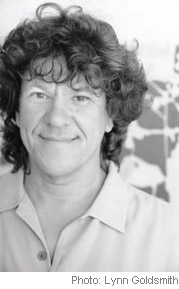Woodstock took the world by surprise. I think that it was shocking on many levels: first, the massive size of the event, and the way they—or we—deported ourselves was surprising.
As the stories started coming out, against the backdrop of that period of turmoil in American history, it became clear how many people were part of this counterculture, people searching for better ways to deal with each other and with our planet. We were struggling, we thought, for a better world. Efforts for human rights, women’s rights, gay rights, how we were treating the planet, organic farming, healthy living—all of those things came to the fore during the ’60s and were spotlighted at Woodstock. It was an opportunity to get together on our own terms, with our music and with each other, as a community. You don’t get to see that outside of your every day life, in such a clear and uncompromising way. It changedeverybody’s feeling about who they were, who we all were, and why we are all here.
by Michael Lang
 People who know I have something to do with Woodstock talk to me, and they always say “It changed my life,” whether they were there, or they were touched by it. And I think that’s the life-changing thing about Woodstock and why it had such impact then, and why it still does.
People who know I have something to do with Woodstock talk to me, and they always say “It changed my life,” whether they were there, or they were touched by it. And I think that’s the life-changing thing about Woodstock and why it had such impact then, and why it still does.
We planned and prepared for 200,000, which we thought was outrageous and beyond anything that would ever happen. I learned from Woodstock that when you’re starting something on this scale, the most critical thing is the people you bring into it—the quality, the talent, the dedication, and the integrity of the staff who make this thing happen. Facing a crowd three times the expected size—with tons more coming in—and the inability to get supplies in and out, we learned to deal with problems on the spot. Because we had the talent of dedicated people, we were able to keep it all together. If you don’t have people who are really smart, really understand the goal and understand the parameters of what you can do and can’t do, then you’re in big trouble.
I think the adversity had a lot to do with why it worked so well. It brought us together as a community and really did unite us as a family, the family of man. I think we did pretty well against great adversity. The Hog Farm had a lot to do with why it all worked. We brought them in because they really related to the spiritual side as much as the practical side. Ultimately, this festival showed us all how the world would work if, even for a short period of time, we were in charge. As a result, a lot of credibility was given to us because of the way we all deported ourselves when we were in charge.
I’m proud of being a part of it. It is extremely gratifying on many levels. Personally, I love the challenge of all the moving parts, how to approach a project of this scale, and how you move things along the way to make everything fi t together at the end. But I also love having the feeling that all of our opinions were being vindicated. At the concert itself, when the sound system worked and Richie Havens went on, I took a deep breath and said “Wow, this is what I had hoped for.”
—Michael Lang



Be the first to comment!